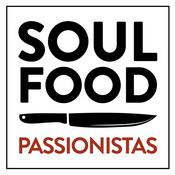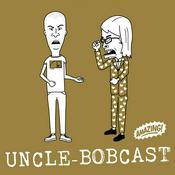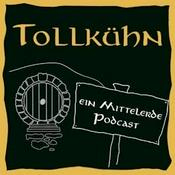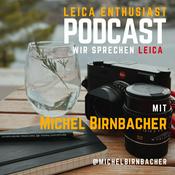281 Episoden
- We’re coming up to AvocadoFest 2026, otherwise known as the Super Bowl, when Americans get fully a fifth of their annual avocado allocation. But how did this humble fruit, originally named after testicles, get from its Mexican forest home to a tattoo on Miley Cyrus's upper arm? This episode, we unravel the avocado's amazing journey, a story that involves not only conquistadors and cartel violence, but also a Southern California postman and actress Angie Dickinson lounging in a white leotard. And we discover where the avocado is headed next—a place where it's known as the butter fruit, and often consumed in shake form. Listen in now for all this creamy green goodness and more. (encore)
Learn more about your ad choices. Visit podcastchoices.com/adchoices - Canned tomatoes are a perfect winter food. As you'll know from our tomato episode, the beautiful fruits in fresh aisle of the supermarket are mostly flavorless outside of the summer season—but the tomatoes that get packed in a can are cheap, readily available, and, most importantly, delicious year-round. This episode, we have the stories of how turtle poop, full English fry-ups, and an Italian romance helped turn the canned tomato into a pantry hero. Plus, are San Marzanos really the best tasting option out there? We've got the juicy tips you need to score the ultimate tomato fix, no matter the season!
Learn more about your ad choices. Visit podcastchoices.com/adchoices Is Your Cinnamon Fake? Where Does Kefir Come From? Plus: Why Is Citric Acid In Everything? Ask Gastropod!
16.12.2025 | 42 Min.The season for holiday baking is upon us, and before you spice up your cookies and pies, you’ll probably want to know: is most of the cinnamon on grocery store shelves actually fake? That’s one question we’re investigating this week on behalf of you, dear listeners, in the latest installment of our popular Ask Gastropod series! This episode, we've got the scoop on what's real when it comes to cinnamon—because your buns deserve the truth. We're also putting our detective hats on to figure out where in the world kefir comes from, in an epic tale that involves mummies, a prince, and a potential kidnapping. Finally, if you look at almost any label, from jam to ice cream to soda to sausage, you'll find one shared ingredient: citric acid. What on Earth is this additive doing in everything, how is its spread connected to a technology that has saved millions of lives—and is it safe to eat? Listen in for a festive feast of listener curiosity, and keep your awesome questions coming our way!
Learn more about your ad choices. Visit podcastchoices.com/adchoicesForget Plain Vanilla: You'll Never See The World's Favorite Flavor the Same Way Again
02.12.2025 | 50 Min.Today, 'vanilla' often means boring, and yet the edible seedpod of this Central American orchid is one of the most expensive spices in the world, not to mention one of the most popular flavors globally. So how did this coveted bean get such a ho-hum reputation? Listen in this episode as Gastropod travels to vanilla's homeland in the highlands of Veracruz, Mexico, to investigate. It's a tale of botanical piracy, beaver butts, and ice-cream barges, in which an ingenious enslaved tween and the product of pulp paper waste combine to transform vanilla from a complex and sophisticated elite treat into the single-note synonym for dull. Plus, we meet the thrilling alternative vanillas we're all missing out on, and serve up the recipe for a vanilla tasting party that's guaranteed to make you fall back in love with the world's favorite flavor. You'll never see vanilla as plain again!
Learn more about your ad choices. Visit podcastchoices.com/adchoicesFrom Fountain of Youth to Fruit on the Bottom: How Yoghurt Finally Made it Big in America
18.11.2025 | 50 Min.Yoghurt is the most diverse section of the dairy case: from Icelandic skyr to creamy Australian, and fruity French Yoplait to full-fat Greek. With something to suit every palate, plus a dose of microbes to support healthy digestion, yoghurt is a staple food in the US, hero of a million smoothies, berry bowls, and snack breaks every day. Which is why it's pretty weird that, until about 50 years ago, most Americans had no idea what it was. This episode, we've got the story of the microbial miracle (and ants?) that gave us yoghurt, as well as the secret connection between those heat-loving bacteria and the evolution of lactose tolerance. Plus, for most of history, yoghurt was wildly popular in large parts of the world—the Middle East, the Balkans, Caucasus, much of Asia, and the Indian subcontinent—and totally unknown elsewhere. Even the promise that yoghurt would cure old age, made by a Nobel prize-winning scientist, couldn't persuade Americans to eat it. So how did yoghurt finally capture the hearts of Americans? Listen in now for the little-known story of our curious relationship with this creamy concoction.
Learn more about your ad choices. Visit podcastchoices.com/adchoices
Weitere Kunst Podcasts
Trending Kunst Podcasts
Über Gastropod
Food with a side of science and history. Every other week, co-hosts Cynthia Graber and Nicola Twilley serve up a brand new episode exploring the hidden history and surprising science behind a different food- or farming-related topic, from aquaculture to ancient feasts, from cutlery to chile peppers, and from microbes to Malbec. We interview experts, visit labs, fields, and archaeological digs, and generally have lots of fun while discovering new ways to think about and understand the world through food. Find us online at gastropod.com, follow us on Twitter @gastropodcast, and like us on Facebook at facebook.com/gastropodcast.
Podcast-WebsiteHöre Gastropod, 10 Minuten Wissen - Kunst und viele andere Podcasts aus aller Welt mit der radio.at-App

Hol dir die kostenlose radio.at App
- Sender und Podcasts favorisieren
- Streamen via Wifi oder Bluetooth
- Unterstützt Carplay & Android Auto
- viele weitere App Funktionen
Hol dir die kostenlose radio.at App
- Sender und Podcasts favorisieren
- Streamen via Wifi oder Bluetooth
- Unterstützt Carplay & Android Auto
- viele weitere App Funktionen


Gastropod
Code scannen,
App laden,
loshören.
App laden,
loshören.


























